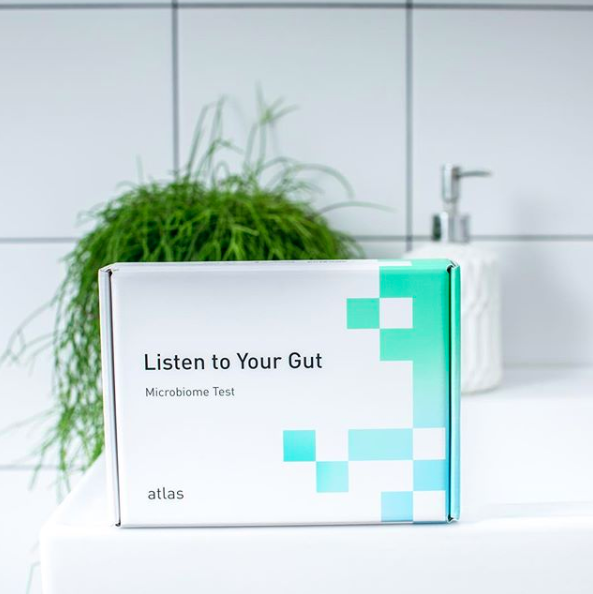Gut Health Testing Kits – Expert Opinion
Gut health is an exciting area, and there’s tons of emerging research. You might be wondering how we can best manage our relationship with food, whilst juggling the improving gut health?
Why do we care about gut health?
Our guts do a whole lot of important work. Our small intestines play a role in up-taking nutrients from the food we eat and then shuttling those nutrients around for use in the rest of the body. The large intestine is important to maintaining fluid and electrolyte metabolism (like salt, potassium, and magnesium) while also digesting the more fibrous foods we like to eat. Both the small and large intestine are home to bacteria that help maintain our internal ecosystem. These bacteria are thought to play a role in: The digestion of nutrients, our ability to fight infections (most of our immune system is located in the gut!), and are thought to play a role in our mental health as well.
Principle no.10 of Intuitive Eating (IE) is “honour your health with gentle nutrition”. There’s a reason that this principle is last. So if you’re still working through your relationship with food, keep working through the principles! “Healthy eating” really needs to be put on the back-burner for a short while – I know this might sound a little odd coming from a Dietitian.
In light of ‘honouring health’, Atlas Biomed asked me to try out their microbiome testing kit. They’re on a mission to drive the movement towards preventive healthcare with technology that helps people understand their gut. They’re the only company in the UK to have MHRA approval to sell gut tests directly to consumers – this means they are regulated for safety, quality, and effectiveness and are supported by Gov.uk.

After receiving my home test kit, I posted a very small sample of my poop off to the lab in a pre-paid box. My results came back in 5 weeks. I was fascinated to see that my microbiome diversity level was just above average, that I’m a “veggie muncher”, and that my risk of certain disease is “average” to “low”. It was also interesting to see the long lists of the bacteria in my gut!
So what’s the low down? Are these tests worth your money? I will let you decide.
Pros:
- It’s fascinating to get a glimpse into the diversity of bugs in my gut.
- It could be interesting to compare test results month on month.
Cons:
- No standards of ‘normal and healthy’ exist for the gut microbiota.
- When assessing risk of disease based on gut microbiome, there’s a huge chicken-and-egg question involved.
- There is little understanding for what healthcare professionals can recommend off the back of these results that would be different to current dietary recommendations for health individuals which are to increase our variety of fibre containing foods.
- The recommendation and insight could be triggering for someone with disordered eating/eating disorders.
What will change for me off the back of this? Not much! As per the current recommendations to improve gut bacteria in a healthy individual, I will continue to be a “veggie muncher”, finding tasty and exciting ways to add different fruits, veggies and fibrous foods to my diet amongst munching on other tasty fun foods too!
So now you may be wondering, what can you do specifically to support your gut health outside of taking a test?

Here are 4 dietary strategies to support your gut
1. Enjoy those fruits and veggies! Fruits and vegetables are high in vitamins, minerals, and fiber that not only support our gut health but support our whole body. Incorporating a few fruit and vegetable sources throughout the day has been shown to promote the health of your gut. Consuming increased amounts of these foods have been shown to be associated with lower risks of colon cancer too!
2. In addition to increasing dietary fiber through fruits and vegetables, you can increase dietary fibre through the consumption of whole grains! Oats, whole grain breads, brown rice, and quinoa are all examples of whole grains you could give a try.
3. Probiotics are another means of improving gut health. When you think probiotics, think fermentation! These foods include yogurt, kimchi, kefir, miso, and sauerkraut. These are microorganisms that support gut health. Some health-food stores may sell probiotics in a pill form, but they are rather expensive. We also don’t know what combination of these microorganisms and at what dose are necessary to promote health and what microorganisms don’t really help. Therefore, for healthy individuals, it is recommended to take a food-first approach and include probiotics from food sources rather than a pill.
4. We have discussed probiotics and how having those in your diet are good for your gut health, but what supports probiotics? Prebiotics are microorganisms that support the health of the probiotics, which ultimately support us. Not all fiber sources are prebiotics but most prebiotics are a source of fibre.* Sources of prebiotics include many different fruits and vegetables, like; apricots, dates, dried figs and mango, watermelon, asparagus, beetroot, leeks, okra, onions, almonds, pistachios, rye, spelt, cashews, chamomile tea, silken tofu, fennel tea, and legumes.
One thing that is unique about the Atlas Biomed microbiome test is that they remove some of the guess work for you. They were able to provide me with some more insight into my own personal microbiome diversity and made recommendations on which foods I could opt to include in my diet to increase the diversity of my microbiome. It looks like meals with marrow, pumpkin, garlic, and walnut are on the cards for me!
If you want to know more ways to support not only your gut health, but your overall health through gentle nutrition, seek out the help of your local registered dietitian. Because this article cannot replace individualised recommendations. We would love to help!
*Hannah D. Holscher (2017) Dietary fiber and prebiotics and the gastrointestinal microbiota, Gut Microbes, 8:2, 172-184, DOI: 10.1080/19490976.2017.1290756
Note: This article was written as a paid partnership with Atlas Biomed.




